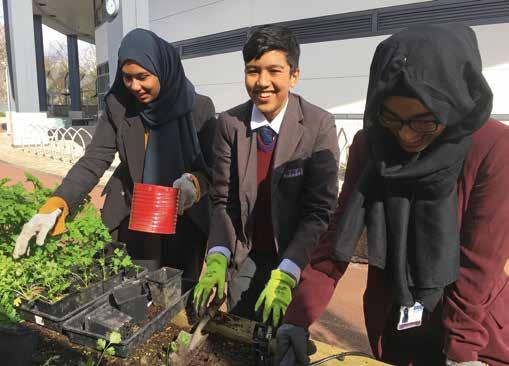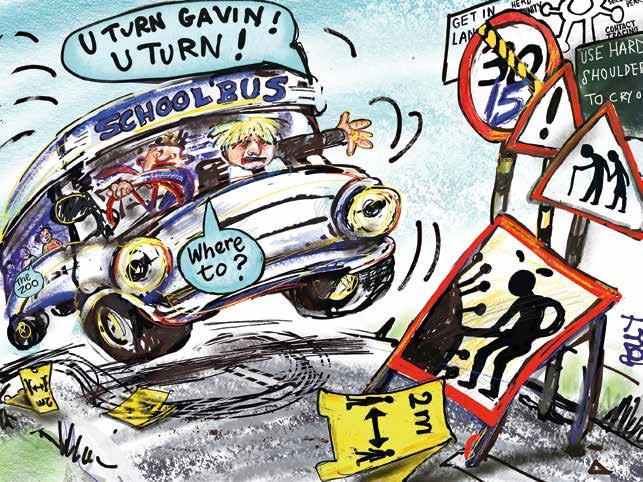
3 minute read
A class act
A life-changing love of nature
Max Watson meets an inspirational green-fingered teacher and finds out what makes Patrick Kirwan a class act.
WHEN Patrick Kirwan started growing plants and vegetables on the science block balconies at Hammersmith Academy, he had no idea that within a couple of years he would be running a whole-school gardening project, complete with two greenhouses, chickens and a host of awards.
This spring, the garden plots have been so productive they are helping to supply a local food bank during the Covid-19 crisis and providing seeds for children – and adults – to grow at home.
Brilliant for relationships
“It’s been a total joy,” says Patrick. “Sometimes the things I want to do or see in the classroom but never get a chance to, I see in the garden. For example, confidence building for kids who I can’t reach in the classroom, or true teamwork, community spirit and collaboration.
“It’s absolutely and utterly incredible. And because you’re in the garden, you end up seeing the kids in a different light – and they see you in a different light, so it’s brilliant for relationships.”
Initially working as an epidemiologist, Patrick moved into teaching after two years, already with a love of nature.
“Basically I’m a country bumpkin from the south east of Ireland and for me, as a young person growing up, a garden was just a route into nature,” he says. “I’ve been trying to get the kids engaged with some kind of naturerelated experiences, because they just don’t have these opportunities.
“It was only five years into teaching that I managed to find some time to start this programme, and it has been an extraordinary experience for me and has totally changed my perception of what we should be doing in education.”
The programme involves training students aged between 12 and 18 to teach other pupils how to do a range of nature-based and environmental activities. This can be growing and propagating plants, learning how to plant living willow fences, tending the chickens or using wood from palettes to make planters.
“It’s a seriously impressive set-up, because these student leaders are basically running
Students working in the school garden before lockdown
mini-workshops in the garden for half an hour every day. And they take full responsibility for it so they arrive on time, prepare for it and each have four or five students who they teach,” says Patrick with a gushing enthusiasm.
Takes students’ minds off their worries
As well as becoming part of their portfolio for a leadership qualification, he says the impact on the students has been immense. They describe how they enjoy learning something new, that they find it refreshing and relaxing, they love working with other people and it takes their minds off their worries.
They also have the pride of winning awards – from the Royal Horticultural Society, among others.
“Hammersmith Academy has no land and a very small perimeter around the school. Essentially, if you can operate this programme in our school, you can do it anywhere. And it’s a school where well over half of the kids live in apartments,” he says.
There have been many spin-offs in the community as well. Students have been involved in garden projects with a nearby care home, they work with Hammersmith Community Gardens Association and a local café owner has asked them to plant up pots outside their premises.
Sadly for the school, Patrick is leaving to return to Ireland at the end of this academic year but he is delighted that his head teacher, who has seen the benefits it brings to students, has agreed to keep the scheme running.
From September the school will be employing a garden designer to carry on Patrick’s work two days a week for at least two years. He is clearly thrilled: “I hope it’ll be a beacon to other head teachers because it’s not just about mental health and developing leadership skills, it’s also that we’re already in an environmental catastrophe. And we’re racing towards bigger and more catastrophic events.
“If we’re not teaching kids to value nature, we don’t have a hope. And it’s something that we’re just not doing.”










